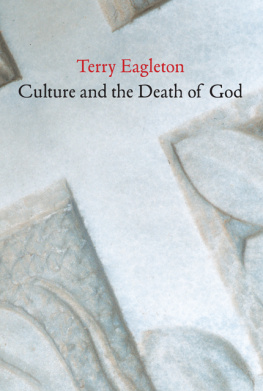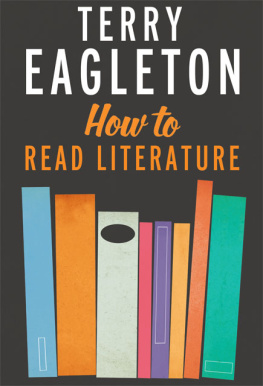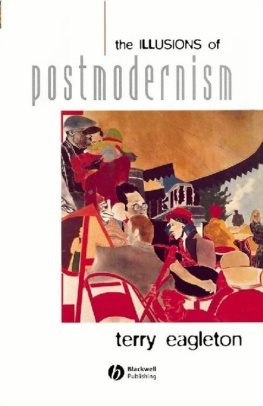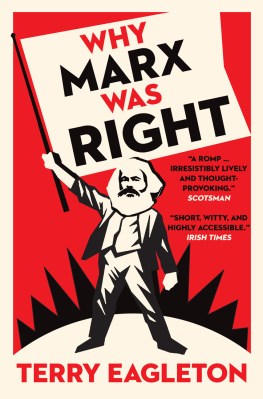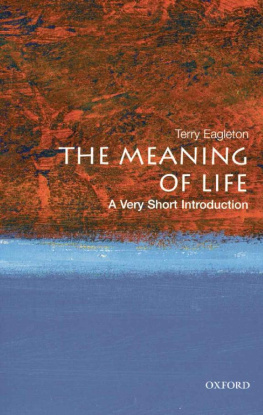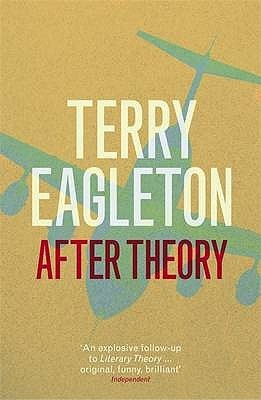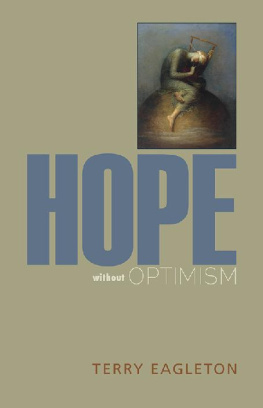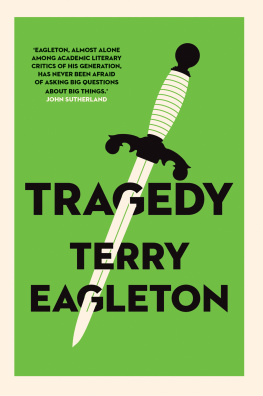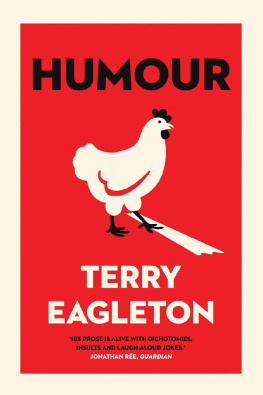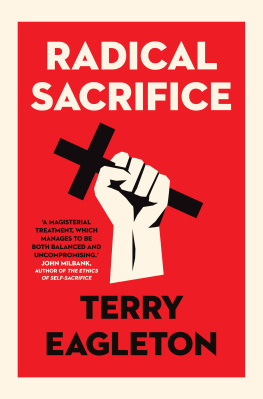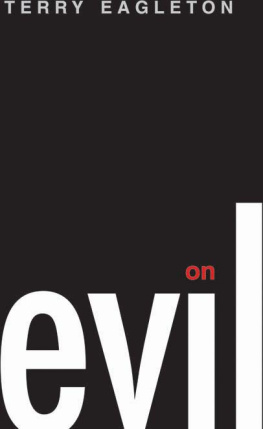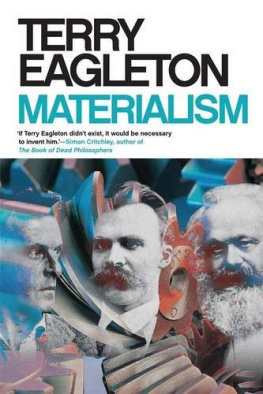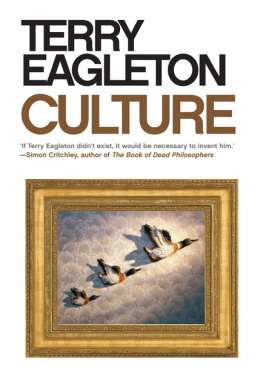

Copyright 2014 Terry Eagleton
All rights reserved. This book may not be reproduced in whole or in part, in any form (beyond that copying permitted by Sections 107 and 108 of the U.S. Copyright Law and except by reviewers for the public press) without written permission from the publishers.
For information about this and other Yale University Press publications, please contact:
U.S. Office:
Europe Office:
Set in Arno Pro by IDSUK (DataConnection) Ltd
Printed in Great Britain by Gomer Press Ltd, Llandysul, Ceredigion, Wales
Library of Congress Cataloging-in-Publication Data
Eagleton, Terry, 1943
Culture and the death of God/Terry Eagleton.
pages cm
ISBN 9780300203998 (cl: alk. paper)
1. ReligionHistory. 2. God. 3. Enlightenment. 4. Religion and culture. I. Title.
BL98.E24 2014
200dc23
2013041989
A catalogue record for this book is available from the British Library.
10 9 8 7 6 5 4 3 2 1
For Denys Turner
C ONTENTS
P REFACE
T HOSE WHO FIND religion boring, irrelevant or offensive need not feel too deterred by my title. This book is less about God than about the crisis occasioned by his apparent disappearance. In pursuit of this subject, it begins with the Enlightenment and ends with the rise of radical Islam and the so-called war on terror. I start by showing how God survived the rationalism of the eighteenth century, and conclude with his dramatic reappearance in our own supposedly faithless age. Among other things, the narrative I have to deliver concerns the fact that atheism is by no means as easy as it looks.
Religion has been one of the most powerful ways of justifying political sovereignty. It would be absurd, to be sure, to reduce it to such a function. If it has provided a craven apology for power, it has also acted from time to time as a thorn in its side. Yet God has played such a vital role in the maintenance of political authority that the waning of his influence in a secular age could not be greeted with equanimity even by many of those who had not the faintest belief in him. From Enlightenment Reason to modernist art, a whole range of phenomena therefore took on the task of providing surrogate forms of transcendence, plugging the gap where God had once been. Part of my argument is that the most resourceful of these proxies was culture, in the broad rather than narrow sense of the term.
All of these stopgaps had other business in hand. They were not just displaced forms of divinity. Religion has not survived simply by assuming a number of cunning disguises, any more than it has been secularised away. Yet despite the fact that art, Reason, culture and so on all had a thriving life of their own, they were also called on from time to time to shoulder this ideological burden, one to which they invariably proved unequal. That none of these viceroys for God turned out to be very plausible is part of my story. The Almighty has proved remarkably difficult to dispose of. Indeed, this is perhaps the most extraordinary aspect of the narrative the book has to tell. Again and again, at least until the advent of postmodernism, what seems like an authentic atheism turns out to be nothing of the kind.
Another recurrent feature of my argument is the capacity of religion to unite theory and practice, elite and populace, spirit and senses, a capacity which culture was never quite able to emulate. This is one of several reasons why religion has proved easily the most tenacious and universal form of popular culture, though you would not suspect so by leafing through a few university cultural studies prospectuses. The word religion crops up in such literature about as often as the sentence We must protect the values of a civilised elite from the grubby paws of the populace. Almost every cultural theorist today passes over in silence some of the most vital beliefs and activities of billions of ordinary men and women, simply because they happen not to be to their personal taste. Most of them are also ardent opponents of prejudice.
This book began life as the Firth Lectures of 2012 at the University of Nottingham, and I would like to thank Professor Thomas O'Loughlin, who organised the event, for being such a genial and efficient host. I am also grateful to John and Alison Milbank for their friendship and hospitality during my stay in Nottingham. Peter Dews and Paul Hamilton read the typescript with their customary insight and acuity, and contributed some helpful suggestions.
TE
CHAPTER 1
T HE L IMITS OF E NLIGHTENMENT
S OCIETIES BECOME SECULAR not when they dispense with religion altogether, but when they are no longer especially agitated by it. It is as though the kingdom of God gives way to the Bloomsbury Group.
In this sense, religion follows the trajectory of art and sexuality, those other two major constituents of what one might call the symbolic sphere. They, too, tend to pass out of public ownership into private hands as the modern age unfolds. The art which once praised God, flattered a patron, entertained a monarch or celebrated the military exploits of the tribe is now for the most part a question of individual self-expression. Even if it is not confined to a garret, it does not typically conduct its business amidst the bustle of court, church, palace or public square. At the same time, Protestantism finds God in the inmost recesses of the individual life. It is when artists, like bishops, are unlikely to be hanged that we can be sure that modernity has set in. They do not matter enough for that. In England after 1688, the church-and-state settlement was such that religious disputes could be conducted for the most part without fear of political recrimination or loss of personal liberty. Ideas that might prove seditious in Paris could be freely aired in London. Religious fervour would pose no challenge to the foundations of the state. Pas de zle was the watchword. Nor were religious sceptics inclined to act in a treasonable way. Hence the markedly non-militant character of the English Enlightenment, such as it was, which by and large remained comfortably ensconced within the social and political establishment.
Philosophically speaking, its background was empiricist rather than rationalist, Locke rather than Spinoza. It was the radical, semi-underground Enlightenment which would find its inspiration in the latter, while the mainstream culture of the so-called Glorious Revolution took its cue from the former. For a patrician Whig The same shyness of religious ardour exists in England today. One would not expect the Queen's chaplain to inquire whether one had been washed in the blood of the Lamb.
The privatisation of the symbolic sphere is a strictly relative affair, not least if one thinks of the various Victorian contentions over science and religion, the culture industry, the state regulation of sexuality and the like. Today, one of the most glaring refutations of the case that religion has vanished from public life is known as the United States. Late modernity (or postmodernity, if one prefers) takes some of these symbolic practices back into public ownership. This includes religion, which in the form of the various revivalisms and fundamentalisms becomes once more a political force to be reckoned with. The aesthetic, too, is reclaimed from the social margins to extend its influence over daily life. Sexuality also becomes political once more, not least in the shape of the women's movement and the rise of militant sexual minorities. High modernity, by contrast, is marked by a divorce between the symbolic and the politico-economic, one which frees symbolic activities for new possibilities while relegating them to the sidelines. There is thus loss and gain at the same time. If the purity police no longer break down your bedroom door, it is partly because sexuality in an individualist culture is nobody's business but your own.
Next page
